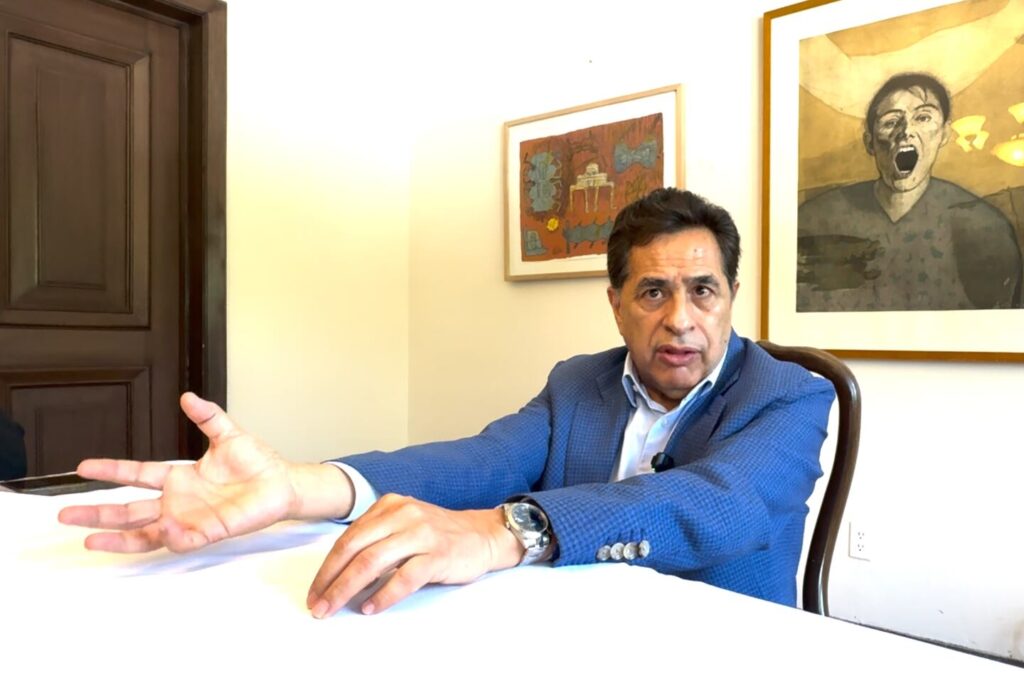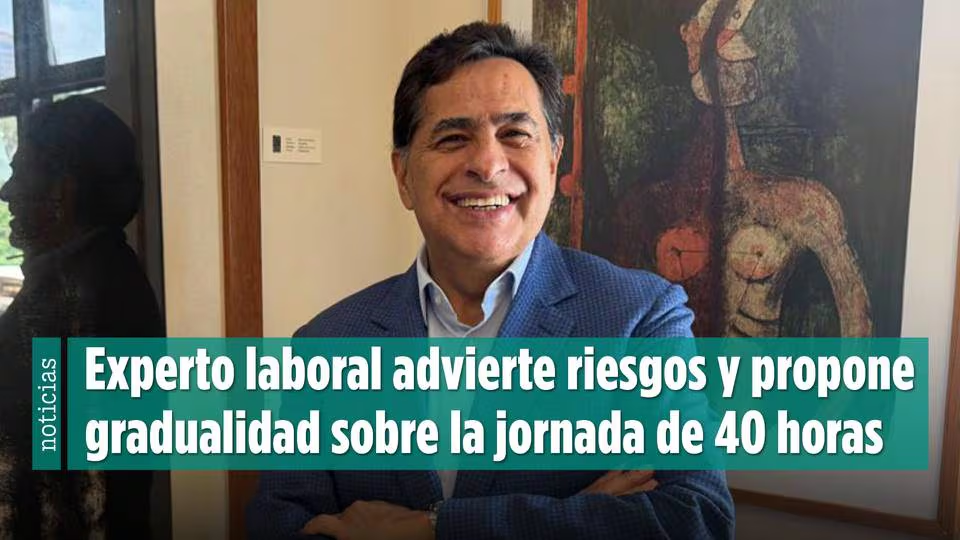With the entry into force of the Chair Law and of the Riders Law, and almost four years after the elimination of outsourcing in Mexico, the country faces new labor challenges. While President Claudia Sheinbaum proposes the gradual implementation of the 40-hour work week by 2030 and Governor Samuel García proposes tax incentives for those who move forward in advance, Publímetro interviewed Ricardo Martínez Rojas, founding partner of De la Vega & Martínez Rojas and one of the most renowned labor law experts, to analyze whether Mexico is truly ready for this change.
Is Mexico ready for the 40-hour work week? Labor expert warns of risks
Is Mexico ready for the implementation of a 40-hour work week?
– No, we are not ready yet. We need to start paving the way responsibly and gradually, with forums and consultations that the Federal Government is already conducting, to prevent falling into a greater unproductivity. It is a legitimate aspiration of the workers, but if we make a mistake in its implementation, we could affect competitiveness and destroy the country’s productivity.
Why is it being proposed for 2030?
– Because a plan to do it by phases is required, as it has been done in countries like Chile and Colombia. Some unions request that the change must be made immediately, but even the more logical union federations understand that implementing it abruptly would lead to informality and the closure of companies. This process must be gradual in order to allow industries to adapt and maintain jobs.

Governor Samuel Garcia proposed tax incentives in the gradual application of the 40-hour work week.
Could this work?
– Yes, it is essential. For example, it is urgent that social security goes back to being 100% deductible, something that was lost during Peña Nieto’s administration. It is also key to eliminate ISR [Income Tax] on overtime with triple pay and avoid that it is integrated into the base salary for contribution to the IMSS [Mexican Social Security Institute], so that the worker can receive the true benefit of his efforts and companies can maintain jobs.
Did the elimination of outsourcing affect companies and workers?
– Yes, it increased informality and the burdens on SMEs, which represent more than 70% of IMSS registrations. If we continue increasing costs without proper planning, informality will rise even further; it has already reached about 55%, affecting both the treasury and the social security system.
Which sectors would be most affected by two mandatory days of rest?
– Heavy industry, such as the automotive and metalworking industries would be the most affected. Services, such as banking and insurance already operate with reduced hours, but industries like manufacturing still work 48 hours. Imposing two mandatory days of rest would reduce 56 workdays per year, affecting competitiveness in comparison to countries like the US, which work almost year-round.

What do you propose for the application of the 40-hour week without harming productivity?
– Flexibility and the concept of time banks must be allowed in order to distribute the 40 weekly hours by month, without exceeding the number of hours, but allowing companies to adapt to their operation, We thus avoid losses in productivity and can move forward without risk.
What is your opinion of the Riders Law?
– It is a socially necessary measure to ensure that delivery drivers have social security coverage, but it is not a perfect law. Platforms and operators must contribute, but the government must be flexible, acknowledging that 70% of delivery driver’s income goes to operating expenses; therefore, an excessive burden could raise prices and reduce the use of these services, affecting 600 thousand people who make their living this way.
Will this truly strengthen the IMSS?
– It must be done with clear actuarial measurements, since the IMSS needs resources, but also efficiency. It is the largest institution in the country, and it must be modernized in order to guarantee medicines and services, ensuring that each group that enters into the social security system does so with sustainable contributions.

So the elimination of subcontracting also ended up affecting companies and some employees.
– Yes, very much so. We have seen informality grow in Mexico in the last few years. In fact, the highest number of informal workers in the country was registered last month. This type of measures, if not applied intelligently, cause many employers to cease wanting to hire formally.
It must be stated clearly: more than 70% of employers registered with the IMSS are small and medium-sized businesses.When these companies face tax increases, are burdened with more obligations, are required to provide more vacation days, are required to pay a higher minimum wage and are sought to be led into a 40-hour week with no stimuli, more informality is generated, and it is already at 55%.This affects everyone, as informal workers pay no taxes or social security, and this would affect the basis of the Mexican economy.
We need to make intelligent decisions. For example, overtime with triple pay is currently taxed for workers, although many continue to work it out of necessity. What we propose is to eliminate ISR from that overtime with triple pay, as is already the case with overtime with double pay, and that it not be included in the IMSS base salary for contribution either. With this, if an employer requires the use of overtime for the 40 hours, this income will be fully received by the worker.
If a worker is working overtime with triple pay and more than 30% of this is deducted in taxes, he is not benefiting at all. We need this burden to be eliminated and have this money go directly to the worker’s pockets. Additionally, we request that social security benefits become 100% deductible for the employer once again. This is the only way in which we will ensure that the worker truly receives a benefit from working overtime and that companies maintain formality without being suffocated.
So you are seeking to have all extraordinary benefits, such as bonuses and overtime, be tax-free?
– Exactly. There is even a proposal by the PT party for the worker to truly receive more for his effort.
Would this be something similar to what Donald Trump is proposing in the United States, to exempt tips and overtime from taxes?
– Yes, something similar. In Mexico, overtime with double pay no longer pays ISR and does not count for the base salary in the IMSS, but we require overtime with triple pay to be managed in the same way and that employers that use it when necessary cease to be fined.



